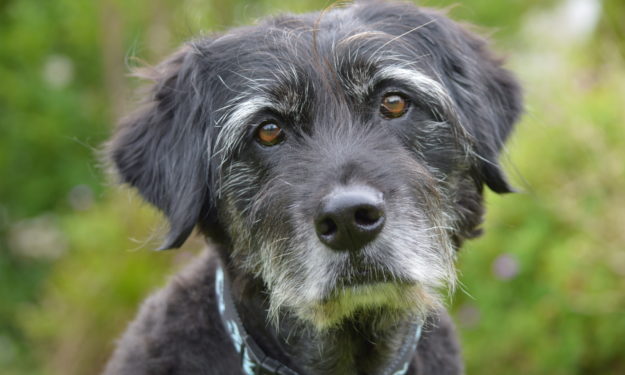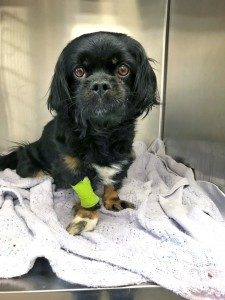IVDD in Dogs: Symptoms & Treatment

IVDD (Intervertebral Disc Disease) is a very common disorder that our Neurology team sees and cares for routinely.
What is Intervertebral Disc Disease?
The spinal cord passes from the brain and down the back in the vertebral canal within the vertebrae. There is an intervertebral disc under the spinal cord between the vertebrae in the neck, back, and many of the tail bones. There is an outer fibrous portion of the disc and an inner gelatinous portion. These discs act as shock absorbers or cushions between the vertebrae. As we age, the inner portion loses water content and becomes mineralized and this weakens the outer portion of the disc. This can lead to a disc bulging or herniating completely.
Common Breeds
The most common breeds we see IVDD are breeds with long bodies and short legs such as:
- Dachshunds
- Beagles
- Pekingese
It is frequently seen in larger breeds as well.

Our Neurology team surgically repaired disk herniations in this sweet Peekapoo’s neck and back.
Symptoms of IVDD
Clinical signs for a disc bulge or herniation may include:
- Pain
- Unwillingness to jump
- Lameness
- Weakness
- Incoordination
- Hunched back
- Reluctance to move the head or neck
- Fecal or urinary incontinence
This can all be dependent on location of the severity of the herniation.
Diagnosis & Treatment
In order to get a definitive diagnosis for a disc herniation, an MRI is the best source for spinal imaging. Treatment for IVDD can sometimes be management with medications. Some veterinarians prescribe anti-inflammatories, pain medications, or muscle relaxers. In addition to medications, strict rest and confinement is most necessary. Elevating dishes and harnesses are recommended for those with cervical IVDD.
Some patients do not respond to medical management. Additionally, some patients are unable to stand or walk and incoordination/weakness is worsening. In these cases, surgery is necessary. When surgery is performed, the goal is to decompress the spinal cord by removing the compression. Following surgery, the prognosis is good as long as the patient remains to have feeling in their limbs. Once a patient has lost pain sensation in their limbs, their prognosis is guarded or poor.
We have a wonderful Neurology team full of skilled technicians and board certified veterinary neurologists. We treat each and every patient with the best of care, and we are always here for you and your pet.